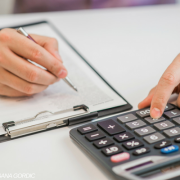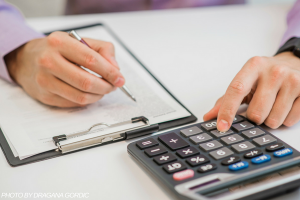Preparing your property and assets for a storm.
With the wintery weather upon us, it’s never been more important to make sure your home is protected from the elements. So what are the best ways to prepare your property and assets for increasingly stormy winters?
1. Perform maintenance regularly
Exposure to the elements can cause the condition of your property to deteriorate over time. Sun, wind, and rain can all cause extensive damage that, if left, can be very expensive to fix. This is why it’s vitally important to make and stick to a regular maintenance plan.
Having your home inspected periodically by a professional builder can be a great place to start, as they will be able to tell you how structurally sound your home currently is, and which areas may need attention. This is particularly important if your home was constructed before 1981 – properties built after this date were subject to new Australian Building Standards which include measures to prevent damage from storms and cyclones.
2. Be aware of the main danger zones
Certain areas of your home need special attention to make sure they’re storm ready. Some of the most common types of damage sustained by Australian homes during storms include:
- Rotten timbers failing
- Unreinforced masonry walls collapsing
- Windows and doors being blown open or broken
- Damage to the roof and attachments such as gutters, eaves and fascias
- Structural damage to walls and ceilings
These areas of your home are all particularly vulnerable. Even if they’ve recently come through a storm apparently unscathed, they may be weakened and less able to withstand the next one, so it’s important to check them regularly and keep them well maintained.
3. Carry out proper roof maintenance
It’s important to check the condition of your roof at least once a year. Before the winter hits is a good time to do this. Getting inside the roof space enables you to check for damage before you actually get on the roof – if you can see any light coming through, this means there are holes or cracks which need repairing. This is also a good vantage point for making sure your roof timbers are in good order and showing no signs of rot, damp or termite damage.
Once you’re actually on the roof, you should replace any missing or broken tiles, and make sure no dirt has built up underneath the tiles, as this can prevent water from draining properly. You should also clear your gutters of any leaves and other blockages, to make sure water doesn’t overflow into your roof cavity.
Remember, working at height is dangerous – it’s advisable to consult a professional roofer.
4. Prepare your yard
Keeping your yard tidy is an essential part of storm preparation. Outdoor furniture and garden sheds should be properly secured to make sure they can’t be picked up by strong winds. Sports and play equipment and other heavy items should be put away and stored somewhere safe. It’s also a good idea to park your car in an area away from trees and power lines to minimise the risk of it getting damaged by anything falling on it.
Make sure your drains are clear to help prevent water pooling and flooding and trim any trees or overhanging branches that could possibly fall on your property during a storm – remember to check with the local council before you do this, as you may need permission. It’s advisable to have your trees inspected by a qualified tree surgeon, who will be able to identify hazards such as root damage.
5. Extra precautions
Some additional planning can help make your home extra-safe from storm damage:
- Use masking tape on your windows to help prevent breakages.
- Place sandbags over indoor drains in case of flooding – this will guard against sewage being washed into your home.
- Unplug any electrical items and disconnect your TV aerial.
- Make sure you have emergency supplies on hand in case your home loses power. These should include a supply of drinking water, fuel for the car and any essential medications you are taking.
Being prepared for storms is the best way to make sure your property can weather the weather, as and when it hits.
(Feedsy Exclusive);(Article source here)









